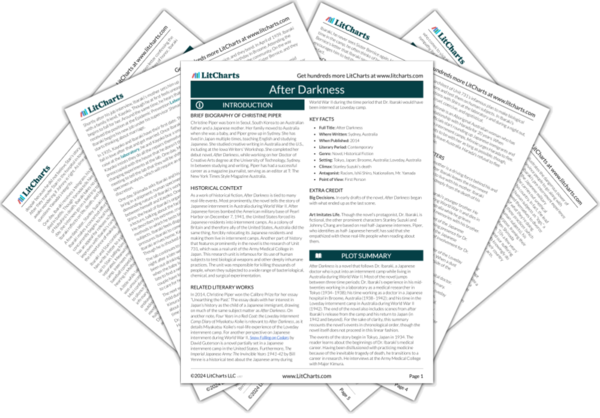The brief moment of comfort when Ibaraki believes that he will be able to share his experiences with Kayoko indicates how desperately he wants to do so. However, when he realizes that she thinks he is simply going out drinking with geishas for his career, he is unable to tell her of his own accord. This moment, though it shows a forgiveness on Kayoko’s part, further emphasizes the emotional divide between Ibaraki and Kayoko due to his secret.
